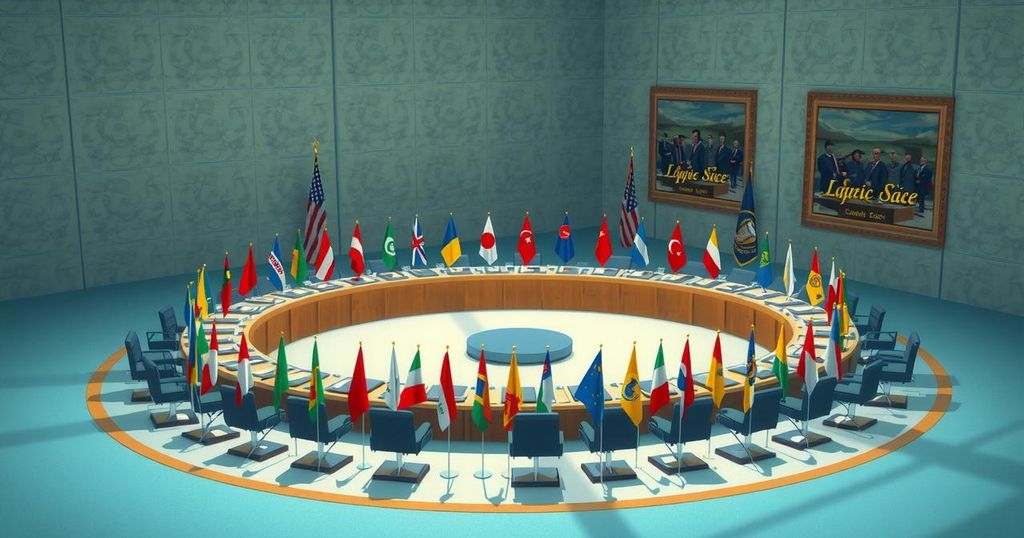At the UN, Pakistan highlighted its role in the fight against terrorism, identifying root causes such as poverty and injustice. The importance of addressing these issues was reiterated by Pakistani delegates, along with concerns regarding the rise of groups like Da’esh and al-Qaeda. The discussions emphasized strategic responses and international cooperation in counterterrorism efforts, as well as the need to prevent hate speech that encourages extremism.
At a United Nations meeting on counterterrorism, Pakistan emphasized its significant role in combating terrorism globally and the importance of addressing the underlying causes driving this menace. Pakistani delegate Mohammad Jawad Ajmal stated that Pakistan has been at the forefront of these efforts while also being a prominent target of attacks from groups such as the TTP, Daesh, and Majeed Brigade.
Jamal, a counselor at the Pakistan Mission to the UN, articulated that root causes of terrorism—including poverty, injustice, unresolved conflicts, foreign occupation, and the denial of self-determination—must be confronted. This statement was made in the context of a meeting hosted by the UN Office of Counter-Terrorism to assess progress in counterterrorism strategies.
Vladimir Voronkov, Under-Secretary-General of the UNOCT, provided insights into the global ramifications of terrorism, expressing concern over the resurgence of Da’esh and the ongoing threats posed by al-Qaeda, particularly in regions like the Sahel, Somalia, and the Arabian Peninsula. He emphasized the increasing rates of youth radicalization and the misuse of technology as significant threats that necessitate continuous strategic evaluations.
Continuing his remarks, Jamal highlighted the multifaceted approach to counterterrorism that includes addressing indoctrination, recruitment, and threat mitigation while enhancing international cooperation to eliminate safe havens and disrupt terror financing. He also stressed the importance of upholding human rights and preventing hate speech and xenophobia, including Islamophobia, which may fuel extremism.
In conclusion, Pakistan reaffirmed its commitment to leading global counterterrorism efforts and addressing the underlying issues that foster terrorism. The discussions at the UN highlighted the urgent need for collaborative action against terrorism while respecting human rights and preventing hate-driven narratives. The ongoing threats, particularly from groups like Da’esh and al-Qaeda, necessitate strategic adaptations and sustained international cooperation.
Original Source: tribune.com.pk




